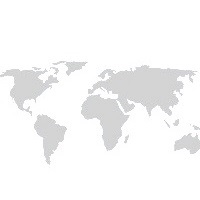|
Introduction
Our future development is limited and constrained by the growing population, the depletion of natural resources and global climate change therefore for the further development of society we must seek growth in a sustainable manner. The challenge of reconciling economic growth, social development and preservation of the natural environment is widely seen as the single greatest issue facing the global community. Sustainable development requires active and knowledgeable citizens and caring and informed decision makers capable of making the right choices about the complex and interrelated economic, social and environmental issues human society is facing.
Rio Earth Summit's Agenda 21 emphasized that education is critical for promoting sustainable development and improving capacity of the people to address environment and development issues. The UN General Assembly in its 57th Session in December 2002, proclaimed the Decade of Education for Sustainable Development (DESD) for the period 2005 - 2014. DESD emphasizes reorientation of existing education programmes by rethinking and revising education to include more principles, knowledge, skills, perspectives and values related to sustainability in each of the three realms social, environmental, and economic important to our current and future societies. It is visualized that education for sustainable development will develop and strengthen the capacity of individuals, groups, communities, organizations and countries to make judgements and choices in favour of sustainable development.
A strong message from the 2002 Johannesburg Earth Summit was that the research community needs to complement its historic role in identifying problems of sustainability with a greater willingness to join with the development and other communities to work on practical solutions to those problems. This Summit defined sustainable development priorities in terms of the so-called "WEHAB"targets for water, energy, health, agriculture, and biodiversity.
The Institute
In accordance with the UN visualization that higher education should contribute significantly to the development of appropriate knowledge and competences in the area of sustainable development, a nation-level Institute of Environment & Sustainable Development has been established in the Banaras Hindu University. The institute will cover education about sustainable development (developing an awareness of what is involved) and education for sustainable development (using education as a tool to achieve sustainability). The institute will be dedicated to a better understanding of critical scientific and social issues related to sustainable development goals through guided research.
|

Proposed Layout of IESD Building
Campus development: A brief report on the building programmes, construction of new buildings initiated or completed during the year under report
New building plan for Teaching and Research Units of Institute of Environment and Sustainable Development with Green Building design elements with the first plot size of 6.5 acres has been approved and construction is ongoing.
|




